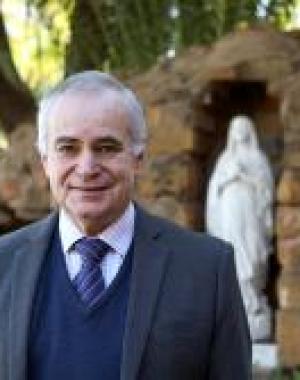Over the next few issues of The Catechetical Review, I will be presenting three articles on the role of the catechist: from the perspectives of a parent, a teacher in a Catholic school, and a parish volunteer. I have fulfilled all of these roles myself, but may I say at the outset that none of them has been as personally important to me as the one conferred by the vocation of marriage—that of husband and father, with responsibility for my family. This is where I will begin.
In 1981, Pope John Paul II issued Familiaris Consortio. I remember this event as clearly as if it were yesterday because it spoke directly into our circumstances. My wife, Anne, and I were anticipating the birth of our first child. One sentence stood out and its impact has never left me: “Their [the parents’] role as educators is so decisive that scarcely anything can compensate for their failure in it” (36). A few years earlier, the same pope had also pointed out that “… parents themselves profit from the effort that this demands of them, for in a catechetical dialogue of this sort each individual both receives and gives.”[i] He was telling us that if we put our efforts into this task, we would gain as much as our children.
...
John Paul II’s emphasis on “the church of the home” picked up on a theme from VaticanII. The success of the Church’s educational efforts in the nineteenth and early twentieth centuries had obscured the role of parents as catechists. Yet the family’s role in passing on the knowledge of God was as ancient as humanity itself. This pattern is so consistent through the Old Testament that I will not multiply examples—a few will suffice. The covenant God offered to Abraham implied an ongoing relationship with his family through the generations; his household had to be a place of instruction, prayer, and worship for the continuation of the covenant. This was reiterated in the Law of Moses: “and you shall teach them diligently to your children, and shall talk of them when you sit in your house, and when you walk by the way, and when you lie down, and when you rise (Deut 6:7). When the new covenant was offered through Christ, the importance of the family was in no way diminished. From the earliest days of Christianity, the family was seen as the gathering place for worship and prayer, and the favored place for catechetical instruction. In Christ, spouses participate in the plan of God, imaging in their marriage Christ’s union with his bride, the Church.
The rest of this online article is available for current Guild members.
This article is from The Catechetical Review (Online Edition ISSN 2379-6324) and may be copied for catechetical purposes only. It may not be reprinted in another published work without the permission of The Catechetical Review by contacting [email protected]


















